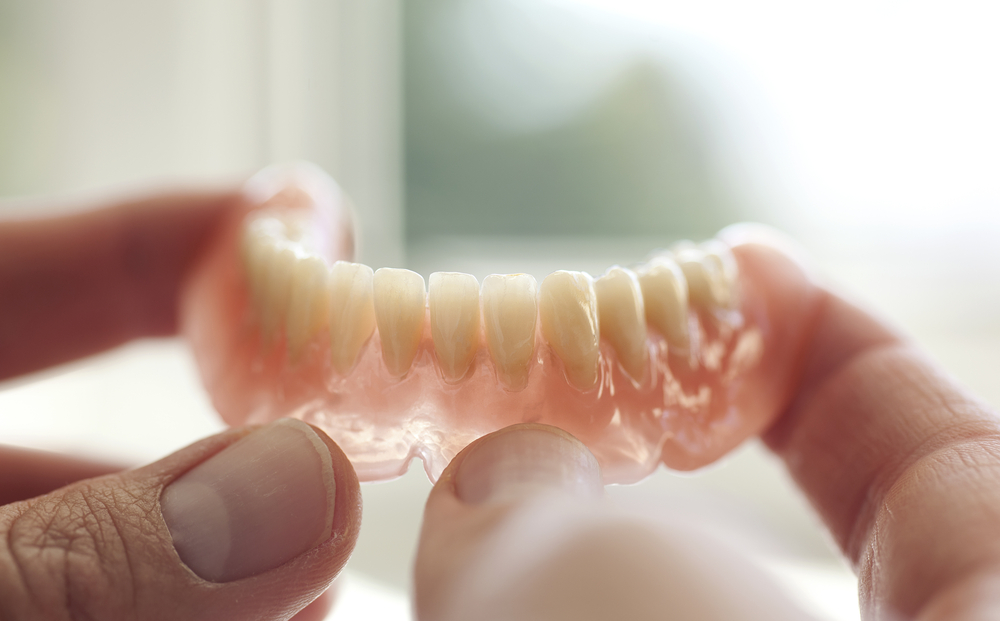Signs It’s Time To Replace Your Dentures
Dentures can be life-changing for those who have lost some or all of their natural teeth. A good quality denture can restore your ability to eat, speak, and smile with...

It’s a common myth that everyone will need dentures someday. Your teeth should continue to function and even remain aesthetically pleasing long into the later years of life with proper care. By maintaining excellent oral hygiene, seeing your dentist regularly for routine teeth cleanings and exams, and correcting minor issues, like cavities, while they are still small, you too can avoid the need for future dentures.
Here are 5 excellent tips for what you can do now to avoid the need for dentures someday.
One of the simplest ways to avoid dentures is to commit to dental checkups every six months. Seeing your dentist twice a year for semi-annual dental checkups is a critical piece in maintaining your teeth’ overall health. During these routine exams, your dentist can discover small problems or potential issues. By treating minor issues before they cause severe damage, you can help save money and your teeth from future restorative dentistry treatments. If dental disease progresses past a certain point, tooth extraction may be the only possible treatment option.
As our mouths age, the nerves in our teeth become less and less sensitive, which in turn will make you less aware of an oncoming toothache and cavity. By maintaining regular checkups, your dentist is more likely to catch a cavity while it’s still small and the tooth can be preserved.
Committing to brushing your teeth for at least two minutes, two times a day, will ensure you’re doing your part to avoid dentures. By brushing, you’ll help avoid tooth decay and periodontal disease, which is the most common cause of tooth loss among adults, according to the National Institute of Dental and Craniofacial research. A weakening in your teeth and gums’ original structure can lead to needing dentures at a later point in life.
Flossing is a critical piece in maintaining your oral health. Tiny particles of food often get lodged where the gums and teeth meet. Over time, plaque develops and eventually hardens into a thick deposit called tartar. Tartar can lead to gingivitis, and if left unchecked, it can spread below the gum line, causing periodontitis, which leads to tooth loss.
Electric toothbrushes offer many incredible benefits. From a more thorough cleaning each day and night to ease of use, electric toothbrushes are a great cleaning tool for anyone, especially someone with mobility issues. Older patients who have arthritis may not be able to brush their teeth as well as they used to, which can create dental health issues. An electric toothbrush typically offers a more effective cleaning for everyone, especially to those who may not brush as effectively with a regular toothbrush.
Fluoride is an incredible natural substance for strengthening your teeth and providing long-term benefits. Fluoride helps to keep tooth enamel strong by reversing tooth decay and remineralizing soft spots in tooth enamel.
The goal of seeing your dental professional regularly for routine cleanings and exams is to help you maintain your teeth for as long as possible – hopefully, a lifetime! If a tooth is lost, there are many factors and options to consider regarding tooth replacement. Even if many teeth have been lost, there are several excellent options for restoring your smile’s look and functionality.
To learn more about what you can do now to avoid the need for future dentures or for more information on tooth replacement options, Aubrey Baudean DDS.